Growth Mindset for Kids
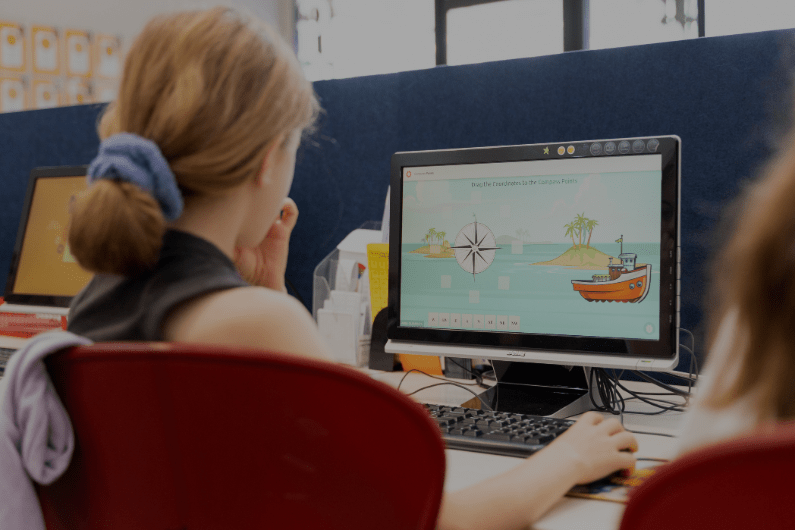
For the last couple of generations, parents and educators have recognised the significance of acknowledging and celebrating children's achievements. Positive reinforcement has become the cornerstone of motivating young learners, and encouraging the celebration of their talents.
The idea is that by focusing on the positive aspects of a child’s performance and efforts, they are instilled with a sense of accomplishment and a desire to keep growing.
Over the past few decades, a groundbreaking concept has emerged – the "growth mindset." This transformative perspective challenges conventional notions of intelligence and learning, revolutionising the approach to education and personal development.
The growth mindset centres on the belief that intelligence and abilities are not fixed but can be developed and expanded through the right mindset, dedication, effort, and a willingness to embrace challenges.
Is your child struggling to keep up with schoolwork? Are they falling behind? Are they bored in class? Or are you looking for extension work for your child? Check out our eBook to learn more about how we help your child improve academically and build confidence through our in-centre after-school tuition.
Fixed and Growth Mindsets
At the forefront of the growth mindset movement is Carol Dweck, a psychology professor at Stanford University. Her extensive research on mindsets has illuminated the profound differences between fixed and growth mindsets.
Through her studies, she has provided valuable insights into how mindsets shape our attitudes towards the learning process, effort, and achievement.
Fixed Mindset
A fixed mindset is characterised by the belief in innate and unchangeable intelligence and abilities. Individuals with a fixed mindset tend to avoid challenges, fear effort, and see failure as a reflection of their limited inherent ability.
These limiting beliefs can hinder personal progress and constrain achievement. Children with a fixed mindset may exhibit negative thinking and be reluctant to take on new challenges, fearing that they might not be naturally gifted in those areas.
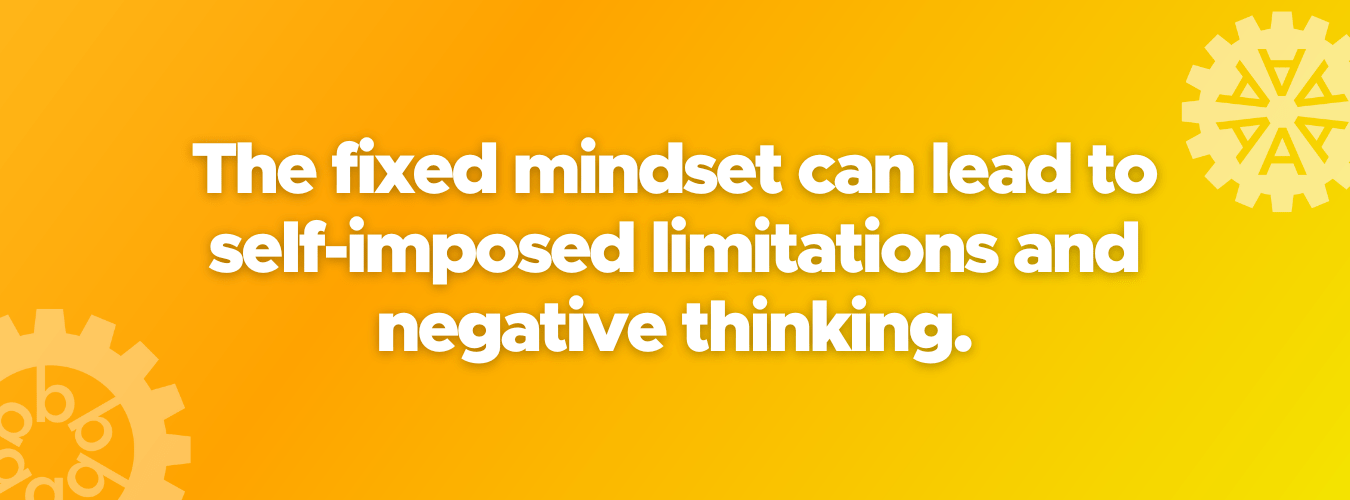
Growth Mindset
Conversely, a growth mindset fosters resilience, increased motivation, curiosity, and a desire for self-improvement. Embracing the idea that abilities can be cultivated through dedication and embracing challenges, individuals with a growth mindset open doors to endless possibilities.
Children with a growth mindset are more likely to take on new challenges with enthusiasm and perseverance. They see effort and practice as pathways to improvement and view setbacks as opportunities for learning and growth.
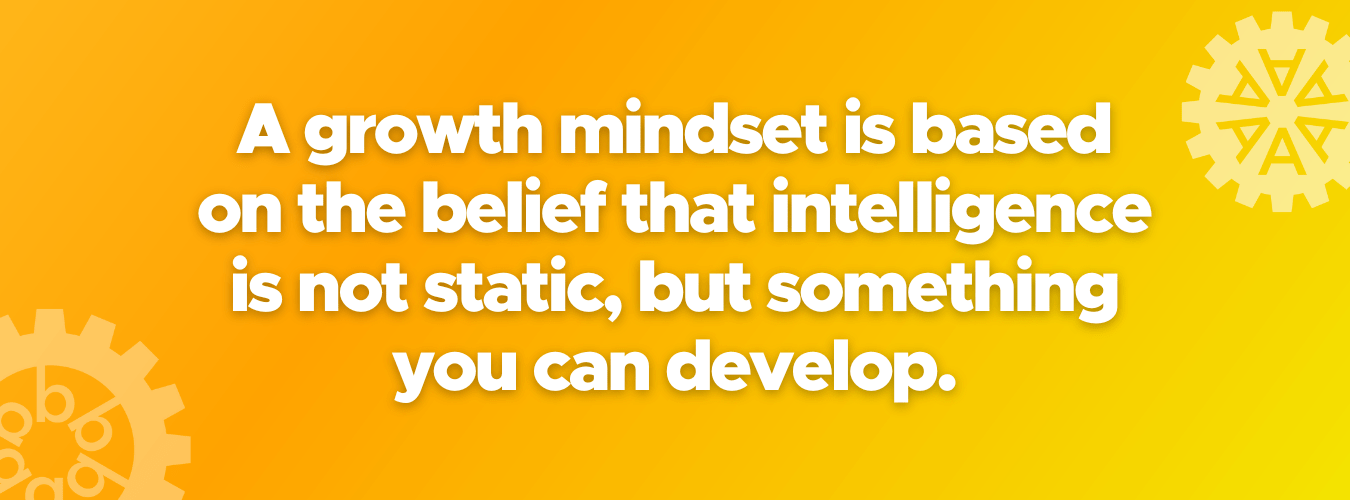
Nurturing a Growth Mindset: Cultivating a Love for Learning
At the core of a growth mindset lies the belief that intelligence is not fixed but can be developed. Embracing challenges, sustained effort, welcoming feedback, and drawing inspiration from others' achievements characterise those with a growth mindset.
Carol Dweck found that people with a fixed mindset want to appear smart. To achieve this, they tend to avoid challenges, give up easily when things get difficult (often saying it’s too hard or boring), see sustained effort as pointless (you’re either good at something or you’re not), ignore critical feedback and feel threatened by the success of others.
Nurturing a growth mindset in children involves creating an environment where they feel safe to take risks, make mistakes, and learn from them. Encouraging a growth mindset in children helps them become more resilient, adaptable, and open to new experiences.
The Science Behind Growth Mindset: The Brain's Capacity to Grow
The scientific foundation supporting a growth mindset approach is firmly rooted in the brain itself. As we learn, our brains form new connections between neurons. Repeating and practising skills or knowledge leads to the creation of permanent brain pathways, enabling continued brain growth in thinking and learning. The brain's plasticity allows it to adapt and reorganise itself in response to new experiences and learning opportunities.
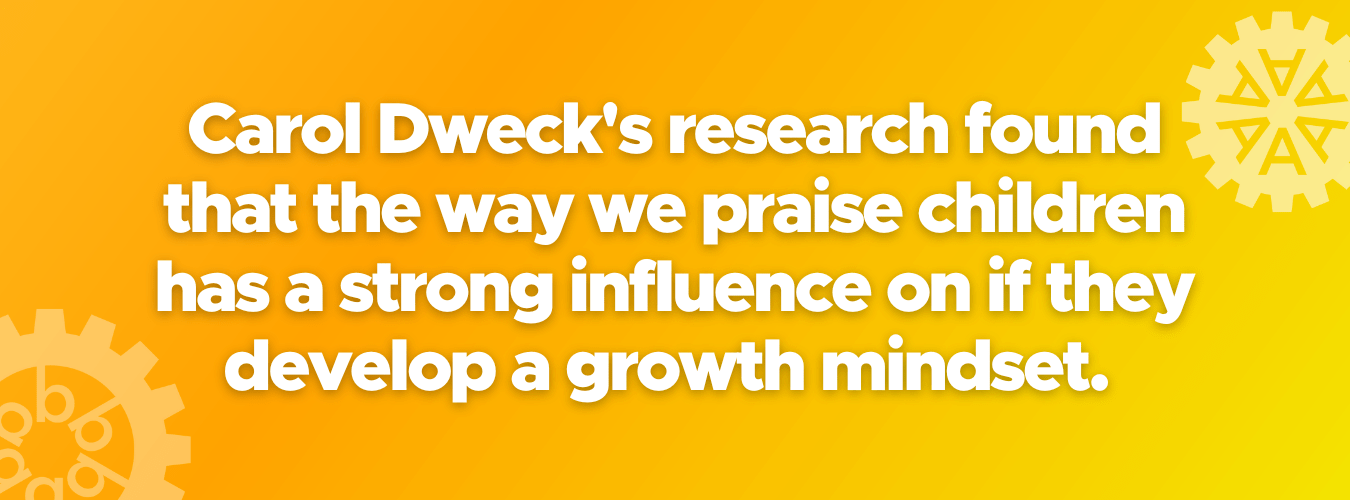
Fostering a Growth Mindset in Children: The Role of Praise and Effort
Cultivating a growth mindset in children is a transformative journey. Carol Dweck's research highlights the influential role of praise and effort in shaping their mindset. Carol Dweck’s research found that the way we praise children has a strong influence on the mindset they develop.
If we praise a child by saying “Well done, you are good at that” we reinforce a fixed mindset early, but if praise and reward effort by saying “Well done, you did amazing things and must have tried” will reinforce a growth mindset.
Process praise and rewarding effort play a significant role in reinforcing a growth mindset. When children are praised for their effort, perseverance and dedication to their learning, they are more likely to develop a growth mindset and embrace challenges with a positive outlook and attitude.
Parental Influence on Growth Mindset Development
Parents have a significant influence in shaping their child's mindset. Studies reveal that the type of praise and reactions parents provide during a child's early years can profoundly impact their outlook for up to five years later.
The exciting part is that parents can leverage the concept of neuroplasticity, where the brain can reorganise itself through experiences and learning, to positively influence their child's mindset.
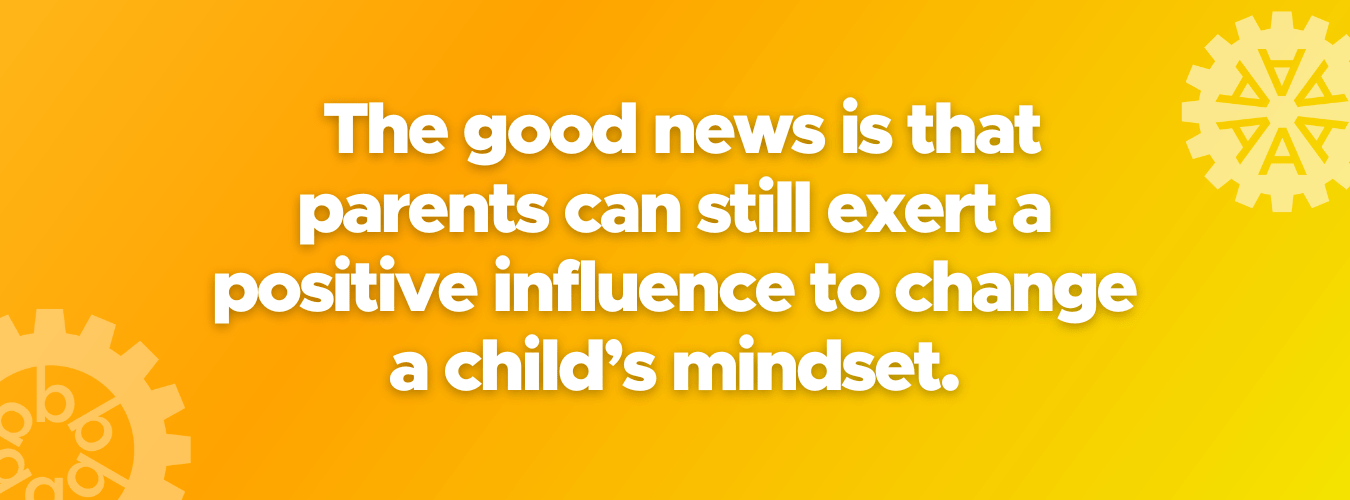
Transitioning from a fixed mindset to a growth mindset may seem daunting, but the brain's ability to change opens a pathway for positive transformation. Here are ways parents can assist children in developing a growth mindset:
Emphasise the Learning Process:
Encourage children to cherish the journey of learning and improvement as much as achieving specific goals. Celebrate their progress and small steps towards growth.
Use Effort-Based Praise:
Applaud children for their efforts and hard work, reinforcing the notion that dedication and diligence pave the way for progress and success.
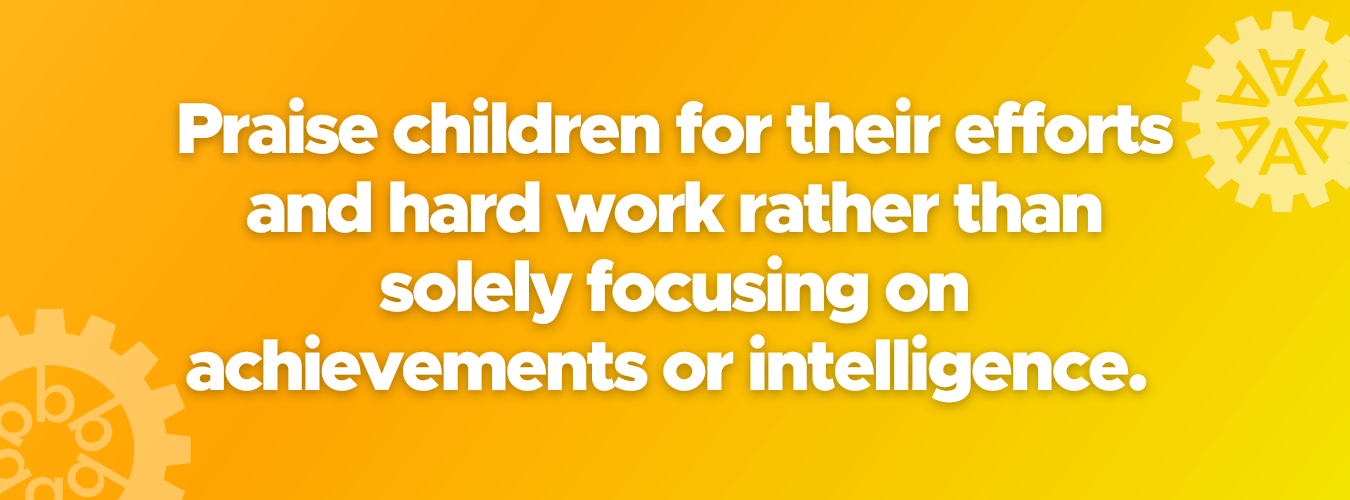
Embrace Mistakes as Learning Opportunities:
Normalise mistakes as natural aspects of learning and encourage children to perceive them as opportunities to grow and learn. Help them identify what they can learn from their mistakes and how they can improve in the future.
Model a Growth Mindset:
Children often emulate the behaviour of adults around them, so showing a growth mindset can inspire them to do the same. Be a positive role model by showcasing a growth mindset in your actions and language. Share your challenges and how you learned from them.
Instil a Belief in Continuous Improvement:
Cultivate a love for learning and empower children to embrace challenges, fostering the belief that they can continuously improve and achieve their goals.
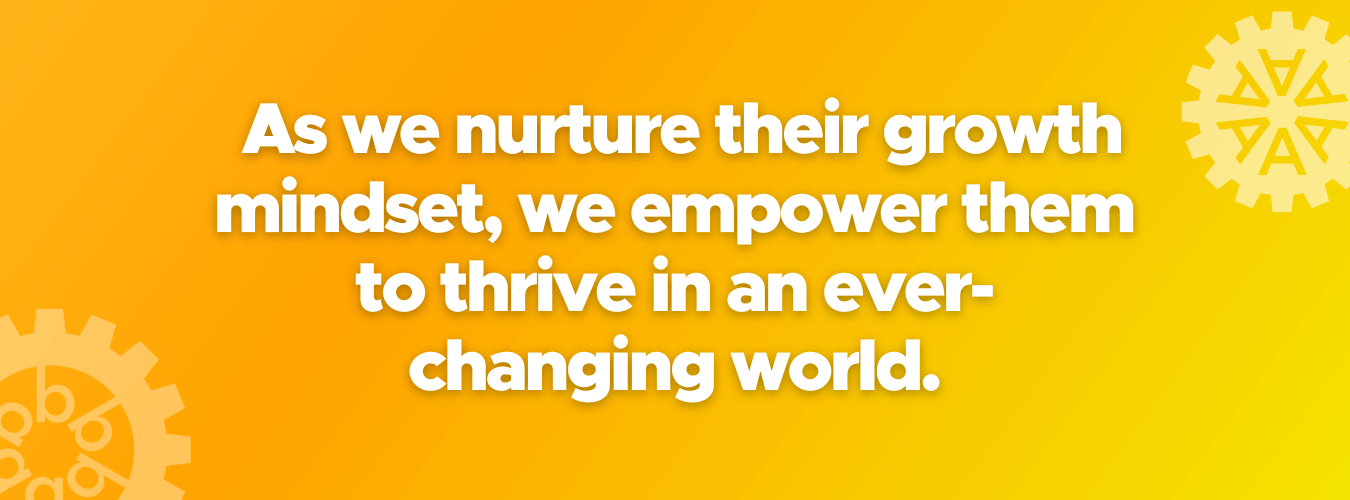
Growth Mindset in Education
In UK schools, the promotion of a growth mindset has found a great deal of support. Many schools are teaching children how the brain works and how to develop a growth mindset.
Embracing a growth mindset in education empowers students to see failures as opportunities for learning and growth, promoting a love for learning and a passion for personal development.
Embracing a Growth Mindset
By understanding your child at a young age, you can better support their growth and development, laying the foundation for success and a successful educational journey.
Curious about your child's mindset and academic progress? Consider arranging a no-obligation sample tuition class with NumberWorks'nWords. Following the assessment, we will discuss the results and offer recommendations for your child's learning journey.
NumberWorks'nWords plays a pivotal role in developing a stronger growth mindset in children. Our focus on fun, perseverance, and progress empowers students to embrace challenges and unlock their true potential.
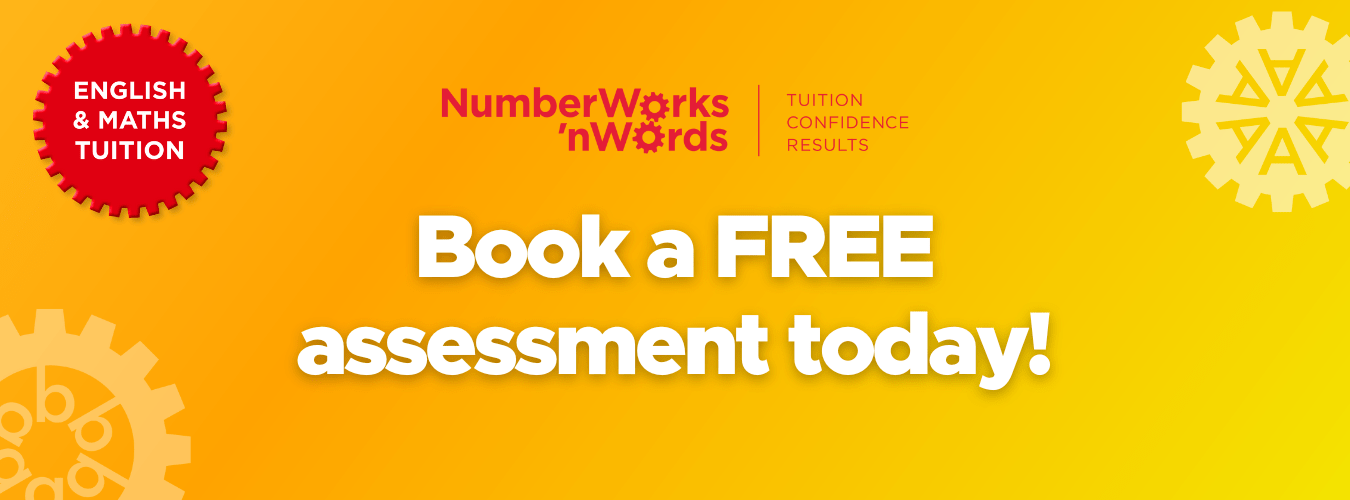
Discover the transformative potential of a growth mindset for your child's educational journey. Contact your local NumberWorks'nWords centre today and book a free assessment, embarking on a journey of learning and self-discovery.
By embracing the power of a growth mindset and thinking, we open the door to endless possibilities and embrace the challenge of a future where every child can reach their full potential.



